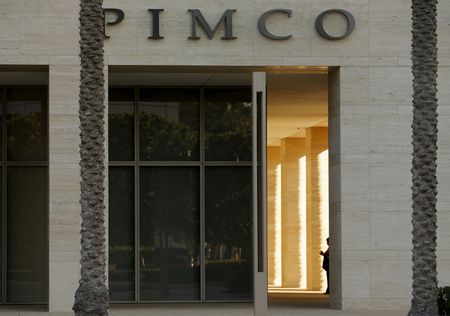By Davide Barbuscia
NEW YORK (Reuters) – PIMCO said on Tuesday that this year’s banking turmoil has created opportunities for the U.S. bond giant to expand in areas which were previously the domain of regional banks.
After three of the largest bank failures in U.S. history earlier this year, as well as the collapse of Credit Suisse in Europe, credit conditions have tightened – meaning lenders have become more cautious about giving out loans.
This is leaving space to non-bank lenders such as asset managers and private equity funds to lend more and expand into areas such as car loans and mortgages, or financing the construction of buildings.
“We see a window to step in as a senior lender in areas once occupied by regional banks, such as consumer lending, mortgage credit, and various forms of asset-based finance,” PIMCO said in a report on its long-term outlook.
PIMCO, which manages $1.8 trillion in assets, said it expects “increasingly attractive” opportunities in private markets in light of the changes in the banking sector.
“Renewed calls to rethink and redesign the financial architecture within which banks operate will finally gain traction,” it said. “This will imply, at least in the U.S., tighter regulation that requires banks to have more capital and hold more liquidity.”
The report came just as U.S. regulators were preparing new rules for banks that could require capital hikes of as much as 20%. Regulators, led by the Federal Reserve, are expected to unveil the proposed tougher requirements by the end of this month, a source told Reuters on Monday.
Over the next three to five years PIMCO expects volatility in markets to continue, with central banks less likely to contain wild price swings through programs such as so-called quantitative easing (QE), as elevated inflation has highlighted that monetary and fiscal largesse has a cost.
“Given that the era of QE, near-zero rates, and volatility suppression by central banks appears to be over, we have a bias toward high quality, more liquid investments over our secular horizon and remain cautious about more economically sensitive areas,” it said.
(Reporting by Davide Barbuscia; Editing by Andrea Ricci)





